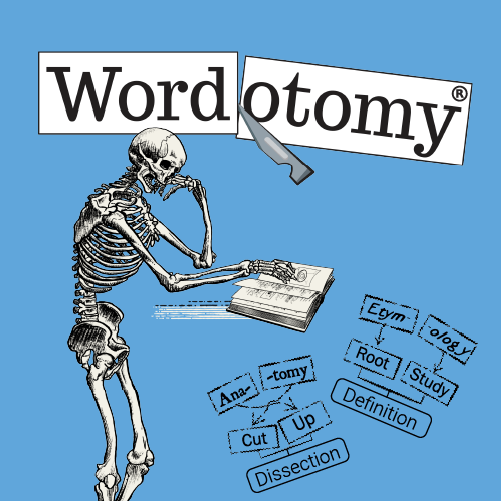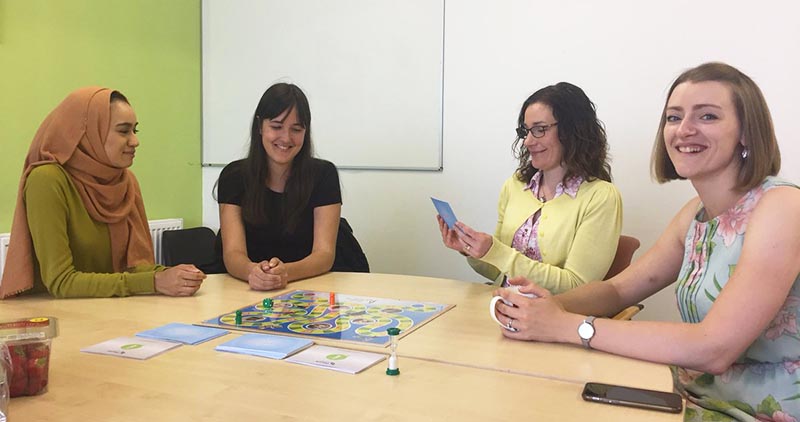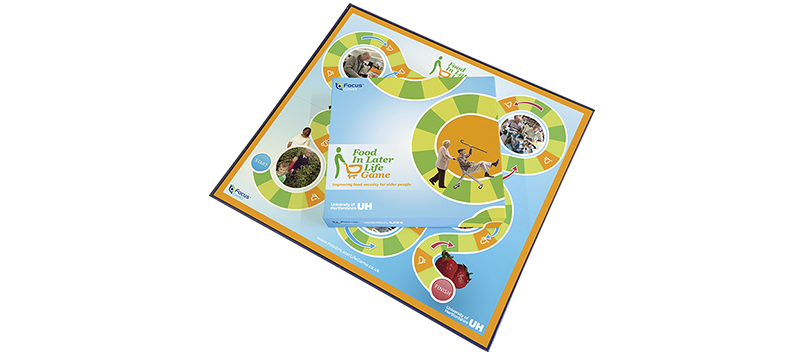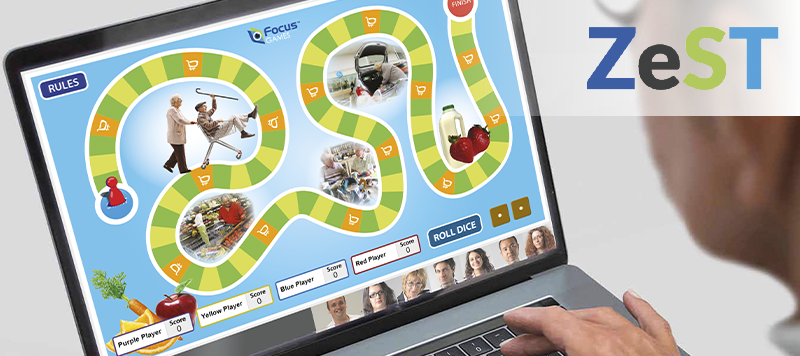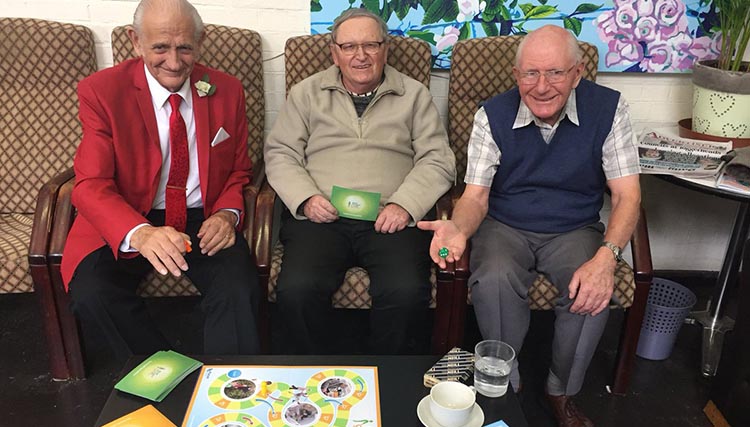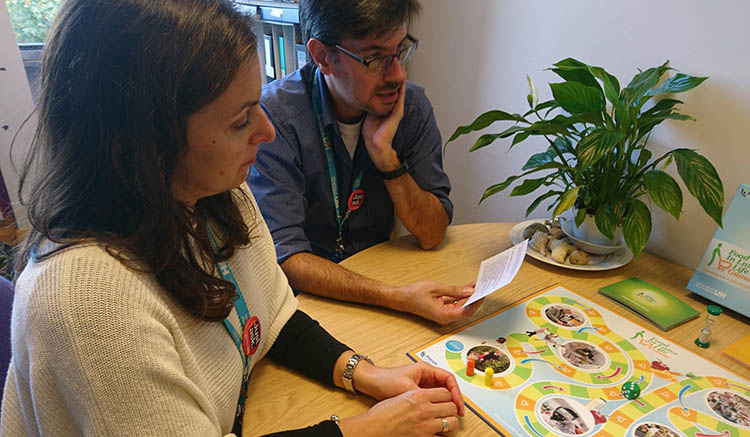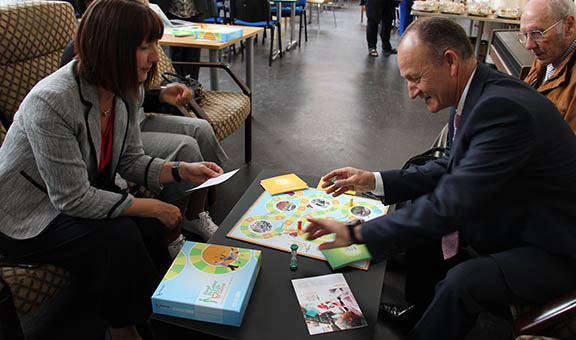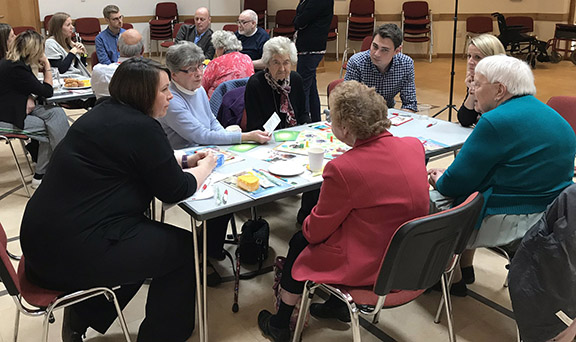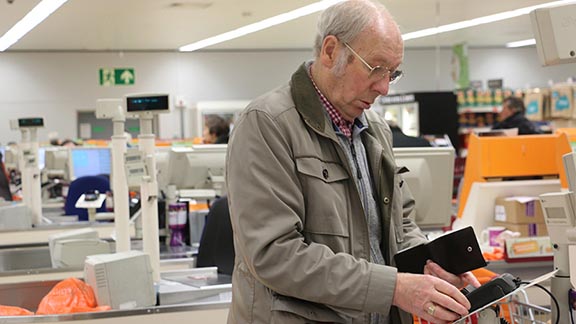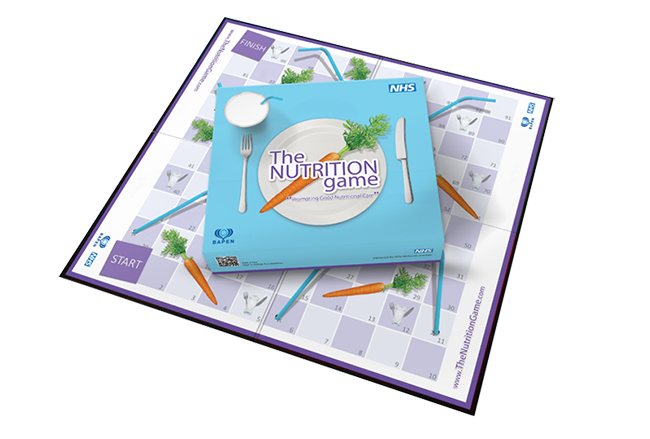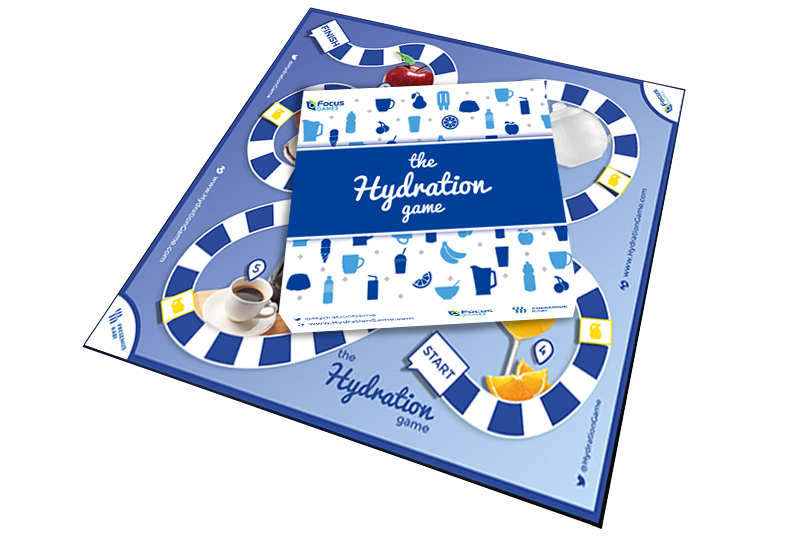Accessing food in later life
Eating well is essential to good health and wellbeing. However, some people find it difficult to access and consume safe, nutritious and tasty (or socially acceptable) food. These difficulties are known as food insecurity. For older people, this is commonly linked with social or health problems - mobility issues, lack of transport or difficulty carrying shopping bags are just a few of the issues faced when shopping for food. In addition, health problems, poor cooking skills or a lack of motivation to cook or eat can pose challenges at home.

It is vital that individuals and organisations working with older people should
understand the challenges that they face. Malnutrition affects 1 in 10 older people and can cause
serious health issues like weakening the immune system, inability to recover from illness, and even
death. This makes it crucial that older people are supported to cook, eat and shop.
The Food In Later Life Game helps address this issue, delivering practical knowledge and confidence
to those supporting, living with or providing a service to older people, with the ultimate aim of
improving health and wellbeing for the older generation.
Face-to-face and online versions available
Who should play The Food In Later Life Game?
The Food In Later Life Game helps people to consider the things that we can all do to help older people continue to access and enjoy food in later life, therefore helping to prevent malnutrition and its associated health issues.
Anyone in a care or support role or providing a service used by older people
would benefit from playing this game, such as:
- Staff in supermarkets or food stores
- Social care staff working in the community
- Community groups such as Meals on Wheels or lunch group providers
- Volunteers working with older people
- Students studying dietetics, social care or hospitality
- Hospitality and catering staff
- Anyone working in public health
- Healthcare staff including community, mental health and practice nurses and students
The role of food retailers
A study by the University of Hertfordshire discovered that for older people, staying in control of their shopping is a key part of remaining independent. For some older people living alone, a shopping trip may be their only source of social interaction with other people. As an integral part of the community, supermarkets and other food providers have a key role to play in protecting older people’s food security and wellbeing
Small changes in approach can make accessing and consuming food much easier for older people. Changes can be as simple as rest areas in supermarkets or large print menus in restaurants – The Food In Later Life Game helps staff discuss and explore the changes they can make to provide a more inclusive environment.
Testimonials
“This game asks, and answers, questions around the
issue of food and older people and helps those working with older people to gain
a better understanding of the issue. Ultimately this is the best way of keeping
people fit and fed and the game really helps for that.”
- Councilor Roberts, Hertfordshire County
Council.
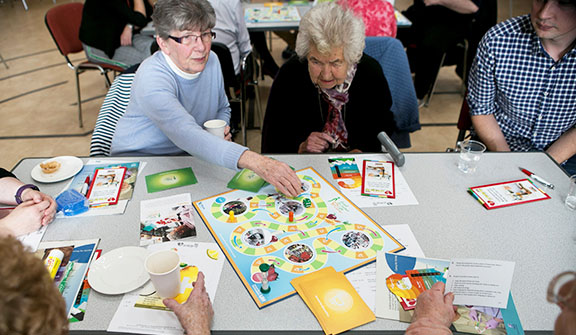
Staff, volunteers and older people play Food In Later Life Game at Malnutrition Awareness Week event.
“The Food in Later Life Game is great at getting
people to think about food insecurity in later life and the barriers to eating
well which can increase the risk of malnutrition. It generates conversations
about how things could be done differently and this promotes change in the
community.”
- Sally Grubb,
Eat Well Age Well Project Dietitian.
“We played the game to encourage conversation
regarding healthy meals and the accessibility of food. The group enjoyed
exchanging useful ideas about managing their access to food. They felt reassured
by individuals experiences which reflected problems they had also encountered.
We would have most certainly liked to play the game again. The thoughts and
ideas from the attendees created a better understanding of their lives. As
independent older adults, shopping and mealtimes are difficult to manage. The
discussion process was very interesting and thoughtful - we even discussed WW2
rations and mealtime recipes!”
- Emma Ring, Keyham Lunch Club, Plymouth
Developed by older people’s health experts
The Food In Later Life Game was developed in partnership with the Centre for Research in Public Health And Community Care (CRIPACC) at the University of Hertfordshire.
“We wanted to develop a fun, interactive way for people to
engage with findings from our research, so that those who interact with older people as
they go about their everyday activities can be more aware of potential food insecurity.
We hope those playing the game will be encouraged to think of and try the simple things
they can do to help those in later life continue to live independently and access the
food they want to eat.”
- Angela
Dickinson, Senior Research Fellow, CRIPACC.
"Sometimes it’s easy to think that the solution to help older
people access food is simple – organise meals on wheels or do food shopping on someone
else’s behalf, for example – but this game, based on our research study, will show that
people’s lives are complex and that there are costs as well as benefits to making
changes to the way people get food as they age. Students, families, paid carers,
retailers, housing organisations and any group who cares about older people’s health and
wellbeing will benefit from playing our Food In Later Life Game."
- Wendy Wills, Director, CRIPACC.
The Food In Later Life Game was developed following research undertaken in the “Food Provision In Later Life Study.” The research briefing “Improving Food Shopping For Older People” is the culmination of this research and inspiration for developing The Food In Later Life Game.
Research Funded by Economic and Social Research Council and Food Standards Agency (Understanding the challenges of the Food system Call Grant Ref: ES/M00306X/1)

More from Focus Games
Ready to buy the Food In Later Life Game?
Or perhaps you'd like to get in touch?






